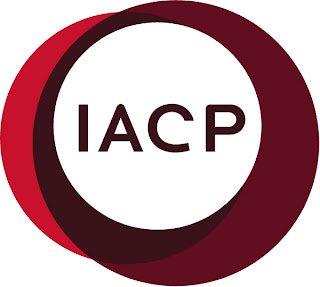 Hervé This is a French physical chemist who works at the Institut National de la Recherche Agronomique (INRA). His main area of interest is molecular gastronomy, or how our knowledge of chemistry, and science in general, can be used as a tool to enhance culinary experiences, rather than the purely empirical knowledge which more often than not dictates the rules in the kitchen.
Hervé This is a French physical chemist who works at the Institut National de la Recherche Agronomique (INRA). His main area of interest is molecular gastronomy, or how our knowledge of chemistry, and science in general, can be used as a tool to enhance culinary experiences, rather than the purely empirical knowledge which more often than not dictates the rules in the kitchen.About the name “molecular gastronomy”, Hervé This writes:
Molecular gastronomy, why such a pompous name? And is it some useless activity of the idle rich or wealthy foodies? Of course not! First, a differentiation should be made between cooking and gastronomy. Cooking means preparing dishes, whereas gastronomy, according to the promoter of the word, means “intelligent knowledge of whatever concerns man’s nourishment” (Brillat-Savarin 2006). When this knowledge is history, the activity is “historical gastronomy,” but when it comes to the study of chemical and physical transformations involved in culinary practice, then it is “molecular gastronomy.”
He goes on to distinguish it from culinology (which BTW is a trademark - “How can science be patented?” Hervé asks). What is even more interesting, is that he includes a modification of the original five points that were published in his PhD thesis (and also included in the 2002 article “Molecular gastronomy” in Angewandte Chemie):
1. investigate recipes
2. collect and test culinary proverbs, old wives’ tales, and so on
3. invent new dishes based on 1 and 2
4. introduce new tools, ingredients, and methods in the kitchen
5. use cooking to show that the physical and biological sciences are wonderful
He writes that this was a major mistake because 3 and 4 are technological, not scientific, and 5 is political. Because of this, he has recently changed the objectives of what he thinks molecular gastronomy should be. He notes that a dish contains a “love” component, an “art” component and a “technical” component. And molecular gastronomy should investigate these three, but only from a scientific point of view. Read more about definitions of molecular gastronomy.
Source: blog.khymos.org
IACP is very proud to present Dr. This as Keynote Speaker during the Plenary Session on Friday, April 13 during this year's Annual Conference. Do not miss this unique opportunity to witness this lecture by one of the founders of Molecular Gastronomy and one of the greatest minds alive. In preparation for this day, you can read Molecular Gastronomy: Exploring the Science of Flavor (Arts and Traditions of the Table: Perspectives on Culinary History).

Following the plenary session, Dr. This will go on to WS-26 for a Conversation with Board member Darra Goldstein and answer questions to those conference attendees who have signed for the workshop.












